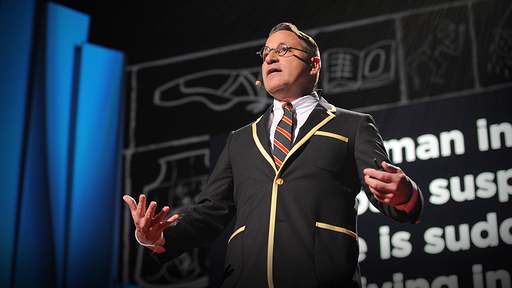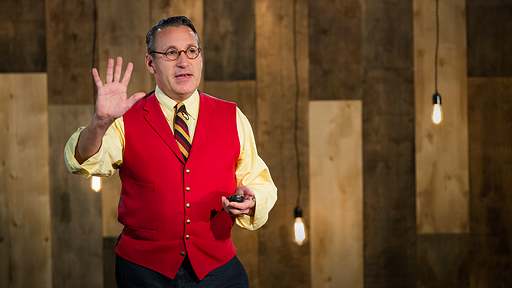Chip Kidd's book jacket designs spawned a revolution in the art of American book packaging.
Why you should listen
You know a Chip Kidd book when you see it -- precisely because it's unexpected, non-formulaic, and perfectly right for the text within. As a graphic designer for Alfred A. Knopf since 1986, Kidd has designed shelves full of books, including classics you can picture in a snap: Jurassic Park, Naked by David Sedaris, All the Pretty Horses … His monograph, Chip Kidd: Book One, contains work spanning two decades. As editor and art director for Pantheon Graphic novels, Kidd has commissioned work from cartoonists including Chris Ware, Art Spiegelman, Dan Clowes and Art Spiegelman. He's a novelist as well, author of The Cheese Monkeys and The Learners.
Chip received the Cooper-Hewitt’s National Design Award for Communication in 2007, the International Center of Photography’s Infinity Award for Design in 1997 and the AIGA Medal in 2014.
Kidd is the author of the TED Book, Judge This.
(Photo: Allan Amato)
What others say
“Kidd’s contribution [to design] extends far beyond a single [book] cover. The fusion of story and graphics that drew him to comics as a child continues to drive his creativity today, allowing him to conjure narrative power from design’s most basic elements.” — AIGA



